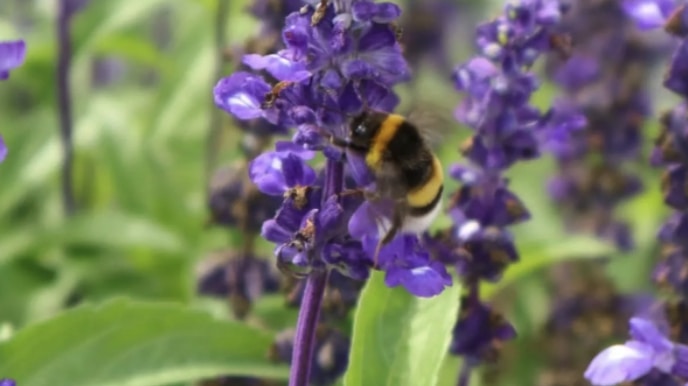
The importance of bees as pollinators of the world’s food crops is well-known, but wasps, flies, beetles and other insects are also vital pollen conveyors. Pollination by insects is necessary for the growth of about 75 percent of the world’s food and more than 80 percent of wild plants. Crop pollination across the globe is estimated to be worth as much as $577 billion per year.
Insect declines due to habitat lost to agriculture and urbanization have been well-studied, but another factor that has affected pollinator communities is global warming. A new study from the Julius-Maximilian University of Würzburg (JMU) looks at how, as climates become warmer and drier, the combination of shifting land uses with the warming climate can have a detrimental effect on insect diversity, and what can be done about it.
The researchers examined more than 3,200 identified species of pollinators from 179 locations across Bavaria. They found that warmer climates — whether they were in grassland, forests, arable or urban habitats […]











